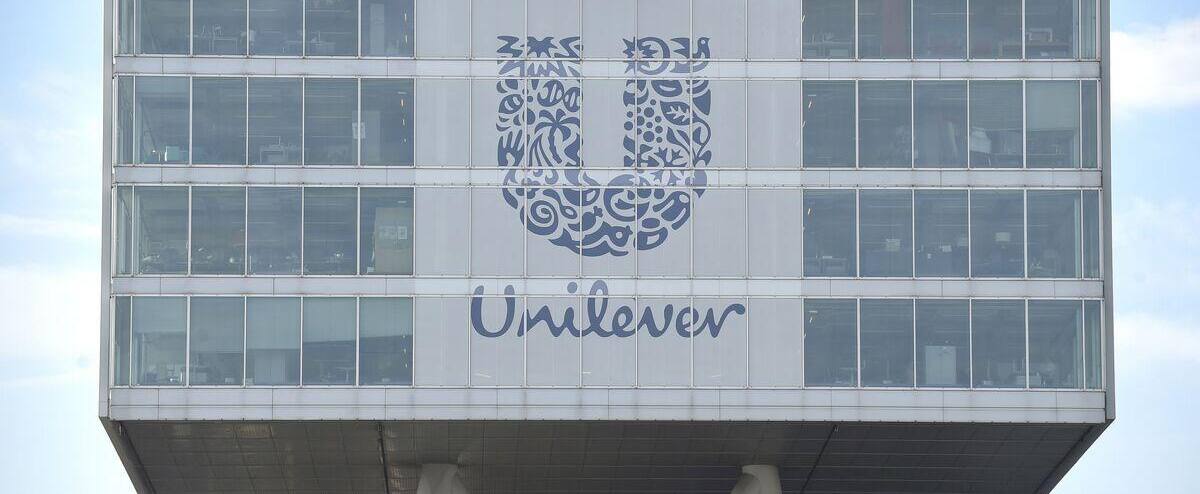Driven by increasingly demanding consumers, the hygiene and agri-food giant Unilever prides itself on being a model student on societal and environmental issues, and is increasing green initiatives without, however, convincing advocates of the environment.
The Anglo-Dutch group, maker of Ben & Jerry’s ice cream and Dove soaps, has taken care to polish its image lately, by acting on issues such as racism and by displaying its ambition to “become the most sustainable company in the world”.
Halve its plastic packaging by 2025, eliminate fossil fuels from its cleaning products by 2030, achieve carbon neutrality for its goods by 2039 … Unilever’s environmental objectives abound and are carefully highlighted.
However, behind these initiatives, the multinational “remains a big polluter”, denounces Meike Rijksen, project manager specializing in plastic waste at the NGO Greenpeace in the Netherlands.
The measures taken by Unilever are more akin to “greenwashing”, believes the activist, who points to minimal solutions for plastic.
“We recognize that Unilever does more than most companies, but it’s nowhere near enough,” Rijksen told AFP.
According to a report published in October 2019 by Break Free from Plastics, a global coalition of NGOs, the group is indeed among the ten main producers of plastic waste polluting the planet, placing itself in fourth position behind Coca-Cola, Nestlé and Pepsico.
Greenpeace is notably advocating for Unilever, which distributes the Knorr, Lipton and Magnum brands, to invest in renewable materials in all of its activities and to stop using single-use plastic.
A profitable choice
The group’s desire with 400 brands to consolidate its reputation as a green company is also reflected in its recent acquisitions, for example with the acquisition of the American brand of environmentally friendly cleaning products The Laundress as well as a “butcher vegetarian »Dutch, De Vegetarische Slager.
A choice that can prove profitable at a time when a tangible change in consumption habits is taking place.
Companies that make the climate their priority “can now gain a competitive advantage” in rapidly changing markets, Steven Tebbe, CEO of CDP (formerly Carbon Disclosure Project) in Europe, told AFP.
Based in London, this international organization specializes in the environmental impact of businesses.
“Consumers, but also investors and large buyers increasingly expect companies to be transparent and take responsibility for their environmental impacts,” notes Mr. Tebbe.
For its part, Greenpeace fears that the group’s marketing strategy will embellish its image in the minds of consumers.
“Their whole business model is still based on destroying the environment. In the meantime, they are praised internationally for their action in favor of sustainability. It’s worrying, ”says Ms. Rijksen.
Lead by example
Beyond climate initiatives, Unilever takes care of its image by taking a stand on certain societal issues.
At the end of June, the multinational announced that it would put an end to its advertising on Facebook, Twitter and Instagram in the United States until the end of the year at least, criticizing the giants of social networks for not fighting enough against inciting content to hate.
In the wake of the anti-racist protests around the Black Lives Matter movement, the group also said it would rename its beauty products with the word “fair” (clear).
“We make sure that our brands take action on issues that concern consumers,” says Marlous den Bieman, communications manager at Unilever Benelux.
The group, which will publish its quarterly results on Thursday, is also committed to a zero deforestation program and a responsible approach to choose its suppliers of meat, palm oil and soy.
Mr. Tebbe believes that all these initiatives show “that climate action is deeply integrated into (the) global strategy” of the giant, which can serve as an example.
“Unilever is one of the world’s largest food and consumer products companies. They have the market power to bring fundamental change to a broken system, ”says Ms. Rijksen, despite her reservations.
“They can and should take this responsibility,” she encourages.
 Canada Live NEWS – 24/7 Breaking Headlines & Updates Canada Live News is one of the largest news curating sites across Canada which is made exclusively for Canadian people.
Canada Live NEWS – 24/7 Breaking Headlines & Updates Canada Live News is one of the largest news curating sites across Canada which is made exclusively for Canadian people.
